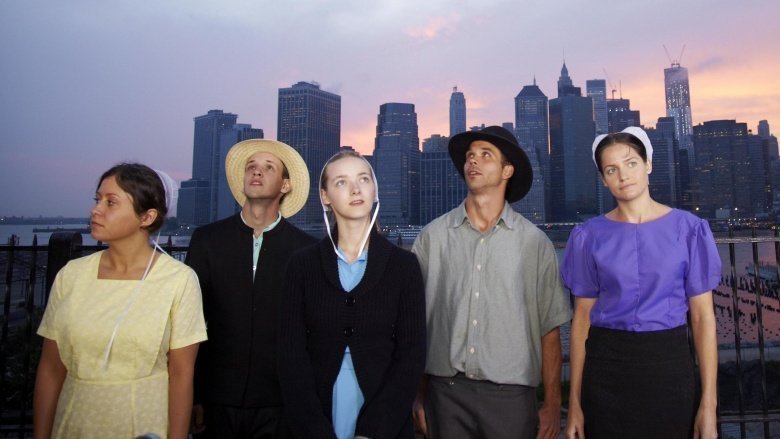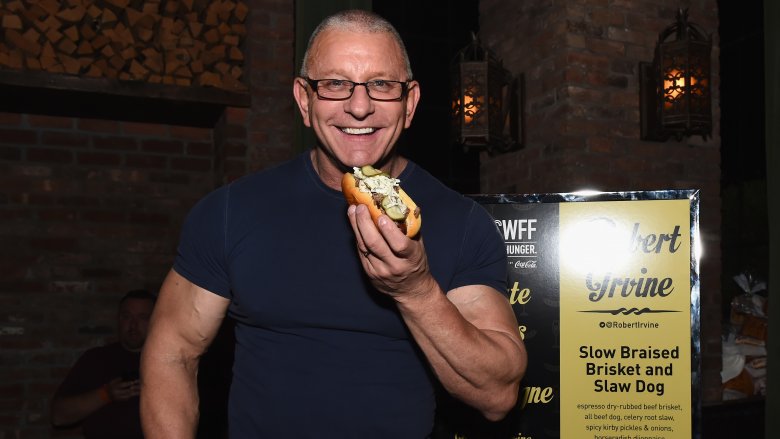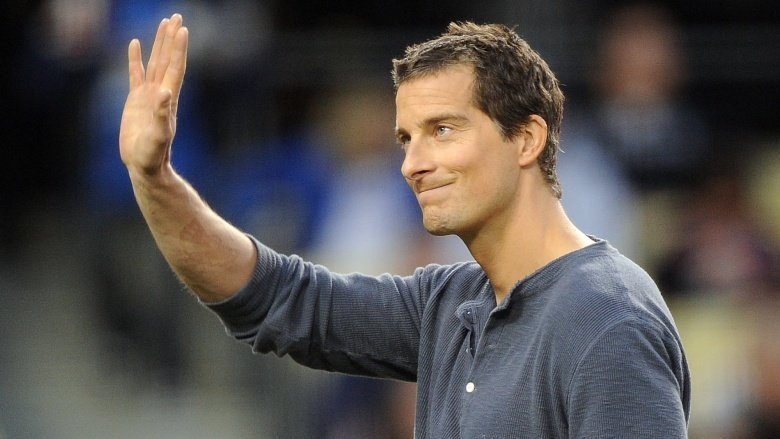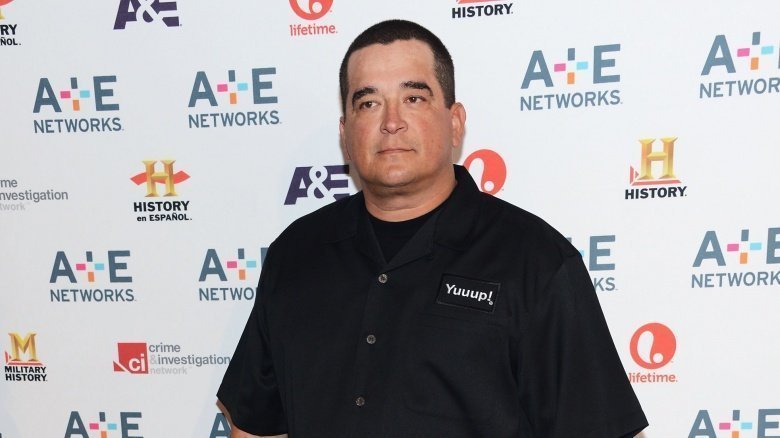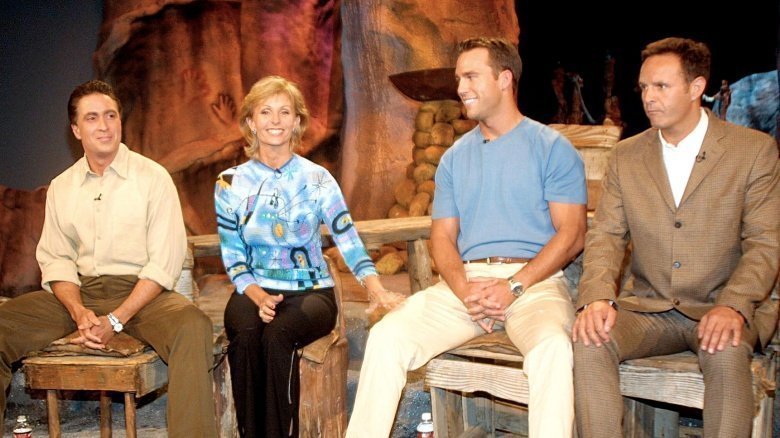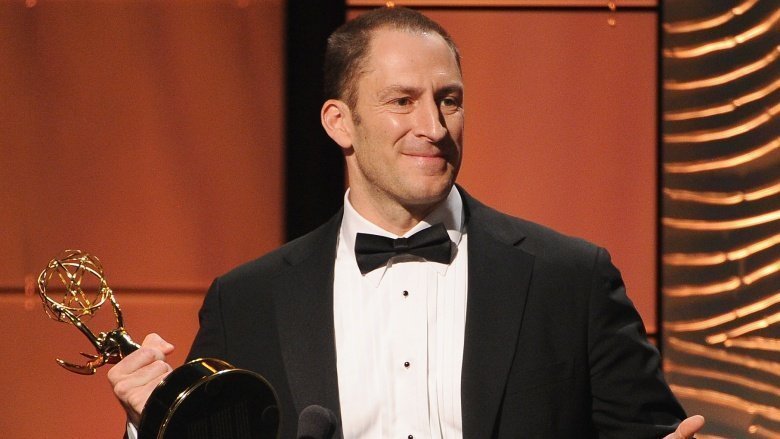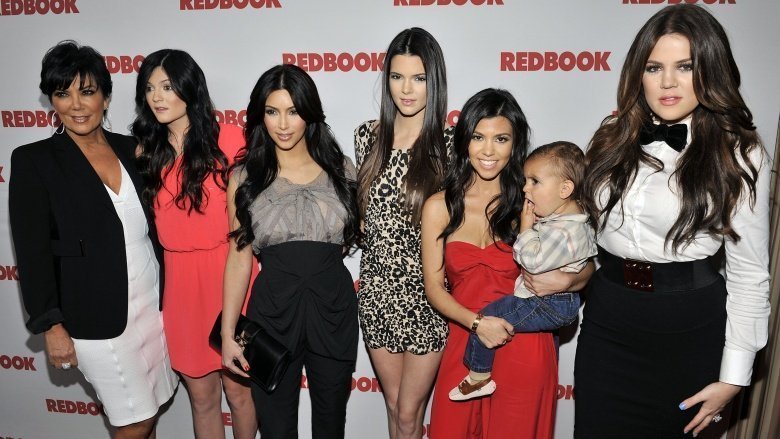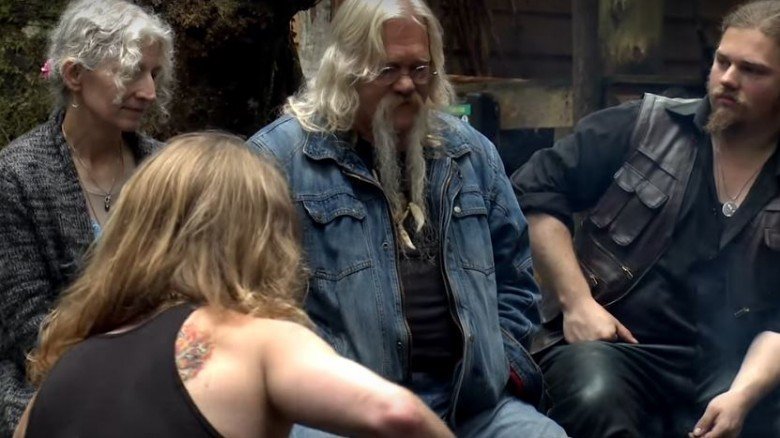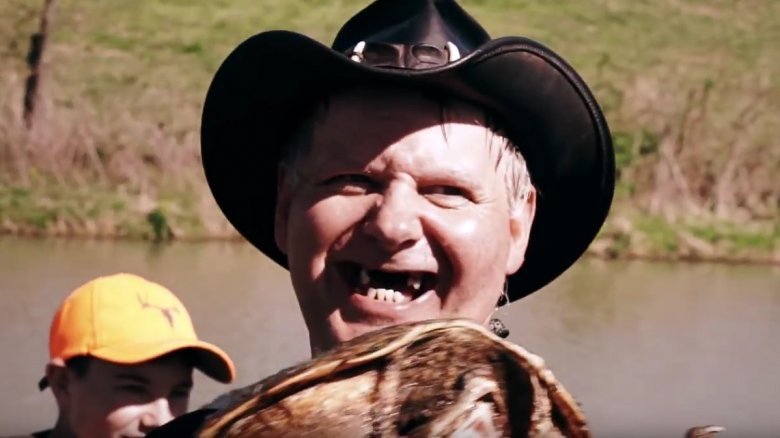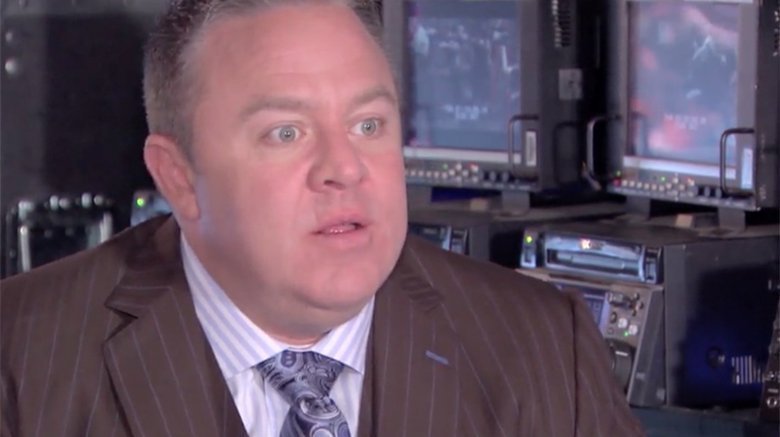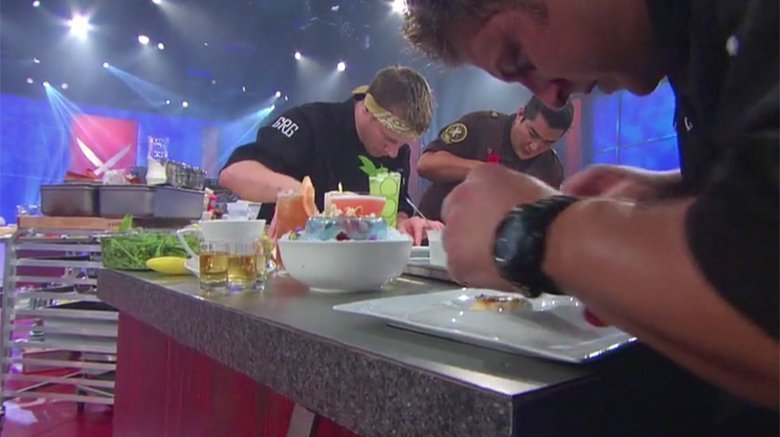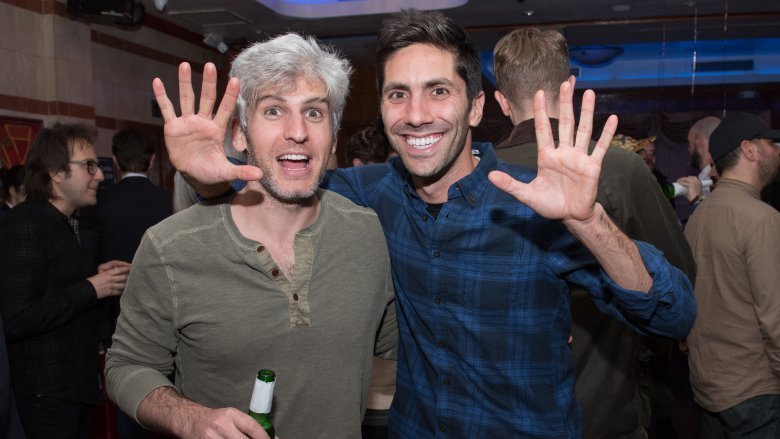Reality TV Hoaxes You Fell For
Most people know that reality TV doesn't always represent "reality," but just how fake can these shows get? The answer: really, really, really fake.
Whether this means light embellishments like reshooting a scene that may have been missed, or outright lies like portraying cast members as total strangers when, in fact, have a child together, reality TV producers have run the gamut when it comes to bending the truth in search of a ratings win.
Perhaps the greatest reality TV hoax of all time is just the general acceptance of the format by its viewers, who could have shut the whole concept down by not watching. Alas, the complete opposite happened, and reality TV muscled it's way onto the majority of both network and cable programming schedules. But that doesn't mean it's gotten any more legitimate over time. Here's a look at reality TV's worst hoaxes and lies.
Faking Amish
In 2012, TLC premiered Breaking Amish, said to be about a group of Amish and Mennonites who ditch their butter churns for the bright lights of New York City. Sound ridiculous? That's nothing compared to the drama that unfolded behind the scenes.
Just two episodes into Breaking Amish, reports circulated that the show's cast members weren't exactly who they said they were. Among the craziest allegations: two cast members said to be meeting for the first time actually had a child together; and another said to be leaving the faith for the first time had allegedly split about 14 years prior.
The scandal eventually grew so big that TLC had to release a statement. "There is a lot of information floating around about the group featured on Breaking Amish," the network said, according to Variety. "Much of it is not true, but some of it is—and is addressed in upcoming episodes."
Dinner: Impossible With a Side of Improbable
Dinner: Impossible star Robert Irvine boasted about his incredible curriculum vitae, which included a role in designing Princess Diana's wedding cake, or so he claimed. In 2008, the St. Petersburg Times did a little digging and discovered that a slice of Irvine's résumé had been greatly embellished. The Food Network fired Irvine from the show shortly thereafter, replacing him with chef Michael Symon.
Despite the embarrassing scandal, Irvine actually returned to the Food Network later that year. In 2009, he was reinstated as host of Dinner: Impossible for a serving of episodes. Two years later, Irvine began hosting another series called Restaurant: Impossible.
Man vs. The Not-Exactly-Wild
In 2007, the United Kingdom's Channel 4 conducted an investigation into Man vs. Wild (called Born Survivor: Bear Grylls in the U.K.) in response to claims that some of Grylls' stunts were set up by a production crew. The examination revealed a long list of misleading information, including instances of Grylls staying at a hotel while claiming to be in the wild (aka. how the rest of us camp). In light of the scandal, some of the episodes in question were re-edited for British and American audiences. The show also made adjustments to become more transparent to viewers.
House Hoaxes
Millions of Americans' mindless Saturday afternoons were ruined in 2012 when a former participant on HGTV's House Hunters claimed her experience on the show was fixed by producers. The participant, Bobi Jensen, told the Hooked on Houses blog that she and her family had already picked a home before taping the show. She said the remaining two houses they viewed on TV were really just their friends' homes. HGTV responded to Jensen's claims in a statement to Entertainment Weekly, admitting things can change due to production timing restraints and the process moving too quickly.
Storage Whoppers
In December 2012, Dave Hester blew the lid off of Storage Wars when he sued A&E for wrongful termination and committing fraud against its viewing audience. In his lawsuit, he alleged that "nearly every aspect of the series is faked" and accused the crew of "salting," a term for planting valuable objects inside participants' lockers. Hester says he wasn't asked back on the show after he complained about its practices to the network. Hester reached a settlement with A&E the following July for an undisclosed amount that we suspect he is happily storing in his bank account.
Theater Moms
If you assumed all the fighting and drama on Dance Moms was for the cameras, you'd probably be right, at least according to co-star Maddie Ziegler. Speaking to USA Today in 2015, the adorable youngster revealed that some of the show's most dramatic moments aren't exactly, you know, real. "It's hard to do a reality show when there's so much crying and drama," she said. "The producers set it up to make us all yell at each other...The moms have a fake fight sometimes. Afterward they just start talking and laugh about it." Color us unsurprised.
Survivor: Outwit, Outlast, Outhoax
Survivor's survival came into question after executive producer Mark Burnett admitted to reshooting scenes using stand-ins to get the best shot. According to ABC News, Burnett said he recreated a river swimming race from Season 2 using body doubles and then spliced into the real race. "The only other thing we've done is when the two tribes approach [host] Jeff [Probst] for a challenge, we may do that twice—because I want a nice wide shot," Burnett said. He insisted none of his tweaking affected the outcome of the show.
Canned Cab
In 2010, multiple reports alleged that you couldn't actually try to hail Discovery Channel's Cash Cab at random. In fact, according to one former contestant, the whole thing was even more staged than you might have guessed.
Writing for TV.com, Kevin Collier claimed he and his friends were actually tricked by producers into thinking they were on their way to a different reality show that one of Collier's friends had been prescreened for weeks prior. One of the producers even arranged a ride for them to the alleged show, which, lo and behold, turned out to be the "Cash Cab." Once in the cab, Collier says the game was very real, with only a few minor exceptions (e.g. If you win money, you have to give it back to host Ben Bailey and wait for a check to be mailed.) Lame, but then again, when have New York City taxis ever been fair?
Keeping Up With the Reshoots
Even rabid fans of Keeping Up with the Kardashians will admit the show probably isn't 100 percent legit. Even so, producer Russell Jay shocked many when he exposed some of the show's reality secrets in a deposition during Kim Kardashian's divorce from Kris Humphries.
Jay testified that Kardashian requested to reshoot her reaction to Humphries' "surprise" proposal because she allegedly did not like the way her face looked in the first take, according to the Huffington Post. Even worse, Russell testified that Kardashian and her mom, Kris Jenner, shot a scene discussing Kardashian's marriage problems on a sound stage, not during the episode's trip to Dubai.
Sad, but what else would you expect from a family who made its fortune selling superficiality?
The Hills Have Lies
Former Hills star Kristin Cavallari admitted on Bethenny Frankel's talk show (via Us Weekly) that many of her relationships on the show were just for the cameras, including her much-anticipated reconciliation with Brody Jenner. "I knew exactly what I was getting into," she said. Jenner also called "BS" on The Hills, even admitting his relationship with Lauren Conrad never actually happened. Does this mean that Heidi and Spencer don't actually exist?
No Voice in the Matter
One of the big selling points of NBC's hit singing competition The Voice is that after the celebrity judges weed through the season's many hopefuls, the American viewing audience gets the chance to decide the winner. If your favorite contestant lands in the bottom three, there's even a "fail safe" in the form of a last-chance performance and Twitter hashtag.
Voice fans may think they have a lot of say in how the competition concludes, but the truth is, they probably don't. Thanks to a very questionable contract signed by Voice participants, as obtained by the New York Daily News, the show's producers reportedly have the final say in how things progress. The Daily News claims the show can "eliminate contestants at any time, even if they are 'winning' with the public," and "ignore the show's voting system."
But, hey, happy voting!
Mystery (Less) Diners
If you ever tuned into an episode of Mystery Diners, a once-popular Food Network series, you were no doubt aghast at the way terrible staff members took advantage of trusting restaurant owners when their backs were turned. The series featured hidden cameras, undercover employees and—you guessed it—mystery diners, all meant to bust these bad workers before they could do further damage to failing businesses.
This reality TV show ultimately failed to live up to the "reality" portion of that phrase—at least according to Radar Online. The tab claimed Mystery Diners had a tendency to hire actors to appear on the show. An episode about The Groves Bar & Grill in Gilbert, Ariz. allegedly featured a so-called suspicious cook named "Chef Dave" who is actually actor and artist Dave Germain, owner of DisJointed Productions.
A Looper article revealed that one of the experts who appears in episodes of Pawn Stars also turned up on an episode of Mystery Diners. Although listed as an actor by IMDb, Bob Yuhas is also well known as an antique restoration specialist. He was credited as the "second bartender" in the Mystery Diners Season 2 "Night Shift" episode.
Not Born Wild
The Discovery Channel series Alaskan Bush People makes a big deal about how the Brown family was "born wild." Allegedly, the Browns love nothing more than surviving on their own in the wilderness of Alaska. The premise sounds convincing enough, but a bit of digging proved the "Wolf Pack" doesn't exactly abide by the pioneer spirit.
Case in point: a scandal in which members of the Brown clan were charged with defrauding the state of Alaska out of thousands of dollars. According to CNN, the Browns applied for a portion of the Permanent Fund Dividend, despite not living in the state of Alaska during the period in question. Perhaps the biggest takeaway is that you have a family of reality TV stars pretending that they're getting by exclusively through isolated wilderness living when, allegedly, they were at least partially supported by the state of Alaska.
Another revelation came by way of a Reality TV Scandals interview with a woman named Heather Baygas, a former girlfriend of Alaskan Bush People star Matt Brown. According to Baygas, Brown lived in a "white house" when they met, and as far as she knew, he spent his childhood in the tiny town of Haines, Alaska. She admitted to being puzzled by the family members' reality TV claims about their life because they allegedly didn't match up with what she knew about her ex and his family before they were famous.
The Phoniest Loser
The primary lie of The Biggest Loser is that the kind of rapid weight loss featured on the show is realistic and healthy when, in fact, it's not only unsustainable in the long-term, but can be potentially dangerous. Setting aside that glaring issue, which has now been scientifically proven, there are actually many other ways the show has been deceitful over the course of 17 years.
For starters, there's the scandalous accusation made by contestant Joelle Gwynn, who told the New York Post that her trainer, Bob Harper, along with his assistant, allegedly furnished her with "Adderall and 'yellow jackets'—pills that contain ephedra extract," which is a federally banned weight loss supplement. Then there are the claims made by contestant Kai Hibbard, who accused the show of bugging people's computers, borderline physical and psychological torture from trainers, and even faking the time between weigh-ins and using phony scales.
Producers and doctors associated with the show have insisted the health and safety of the contestants is the primary concern, but even trainer Jillian Michaels admitted to feeling manipulated in 2014 when she quit the show for good. "Millions of people have this warped negative perception of me," she told People, regarding what she felt was the show editing her in a way that made her look "harsh, rather than helpful."
At the time of this writing, the series has yet to shed the weight of all these accusations, and while it has not been officially canceled, things are not looking good.
Con of the Wildman
There is no doubt that Ernie Brown Jr. (aka The Turtleman) has spent his life as a self-taught pest control operator, often retrieving nasty snapping turtles from filthy ponds or fetching snakes and other varmints out of dark and dingy crawlspaces. His toothless grin, country charm, and signature "Yi! Yi! Yi! Yi! Yi!" call make for great television. Unfortunately, the producers of his hit Animal Planet show, Call of the Wildman, allegedly took things too far.
According to a Mother Jones investigation, there were several occasions when animals were allegedly hurt or killed because of inappropriately staged situations in which The Turtleman was then called in to rescue or remove them. One episode portrayed Brown wrestling a "stray zebra" to the ground, except according to Mother Jones, the zebra had been sedated beforehand and was on loan to the show by a drive-thru safari park. The investigation also revealed that Brown had lost his Nuisance Wildlife Control Officer (NWCO) license, which was required in the state of Kentucky, where much of the show was filmed.
Call of the Wildman was canceled after four seasons, but The Turtleman returned with his own YouTube channel. Although, it features decidedly more tame programming, such as a video about learning how to make lemonade and another that features him playing with a fidget spinner. Not exactly live action.
Restaurant Fakeout
By now, we all expect so-called reality shows to be heavily produced, but even shows such as The Real Housewives feature what seem to be actual fights, regardless of how provoked they may be by producers. This does not seem to be the case with the now defunct Restaurant Stakeout, the Food Network show that supposedly outfitted restaurants with NSA-level surveillance in order to catch employees doing some dirt. According to The Journal News (via Reality Blurred), a show participant alleged that "none of it is real."
Another restaurateur featured on the show, Lucia Ivezaj, of Mount Ivy Cafe, seemingly corroborated that claim, explaining that she was "told what do, how to act," and had to "change clothes every couple of hours, pretending it was another day." She also claimed producers hired a waiter who "dropped food and drank on the job after lying." Of the phony waiter, Ivezaj said, "They wanted a lot of drama, and unfortunately we don't have drama here. So therefore they made some of their own drama."
On top of all of that, let's pause for a second to see who they got to host the show. According to the New York Daily News, before restaurateur Willie Degel became successful with his steakhouse chain, he was convicted in 1994 in "a federal credit card fraud trial with Louis Ferrante, a crony of John (Junior) Gotti, the Gambino boss' son." The following year he was indicted on "federal hijacking and robbery" charges, and the year after that he was accused of being involved in the beating of an off-duty police officer. Granted, we're not saying that proves anything shady about his TV show, but it certainly doesn't inspire a whole lot of confidence.
Last Comic Chosen by Producers
In the early stages of the Last Comic Standing, which was basically American Idol for stand-up comedy, 20 comedians competed for ten finalists spots, which would then become the focus of the competition for the rest of the show. During Season 2, this pool of 20 was judged by a panel of celebrity comics, including Drew Carey, Brett Butler, and Anthony Clark, who all reportedly became infuriated after producers essentially overrode their judgments to create the "best reality show cast," according to the Los Angeles Times.
Speaking with The Times, Carey said, "They're presenting this to the public as if it's a contest, but it's not." He also alleged that he and his fellow judges were led to believe they would determine who got to advance to the finals, but the producers "were going to pick whoever they wanted," adding that Clark "ripped off his microphone in disgust when the results were announced."
There were also alleged conflicts between comics who were cast on the show and who shared representation with show producers. In the end, the only evidence really needed to prove the show was completely contrived was Dat Phan's Season 1 win, which, to circle back to the American Idol analogy, would have been like producers making sure William Hung won the whole thing.
Lyin' Chef America
Although Iron Chef presents itself as one of the most dramatic cooking competitions on television, it turns out, like most reality TV, a lot of it is for show. We should make the distinction here that we're actually talking about Iron Chef America, the timid younger brother of the original, insane Japanese version of the show that was basically a Kung-Fu tournament without the kicks and punches.
When Village Voice food critic Robert Sietsema attended a taping of the show, he left hungry for the kind of intense competition portrayed on TV. What he experienced, according to Gothamist, was a mundane couple of hours during which the Iron Chefs and their competitors cooked "well-tested recipes" because they allegedly knew about the "secret" ingredient in advance. As for the judgment rounds, according to Sietsema, it takes up to two hours to film, so the judges aren't even eating what was cooked during the televised cooking segment. Supposedly sous chefs recreate the dishes that the judges are filmed eating.
Ugh. What a letdown. Sounds like the secret ingredient for every episode of Iron Chef America is baloney!
America's Got Fibbers
Like a lot of contestants on America's Got Talent, Timothy Michael Poe had a sad backstory to go along with his performance. Poe told the judges that he was injured by a grenade blast while serving with the National Guard in Afghanistan, leaving him with a brain injury, a broken back, and a speech impediment. The judges were clearly moved and advanced Poe to the next round. Some home viewers, however, had a different reaction.
According to the New York Post, Poe's tale of woe quickly unraveled after other members of his unit cried foul on his story. The Minnesota National Guard could not corroborate the details of Poe's injuries, only that a single report showed he was "injured in the line of duty." On top of that, the show aired a photo that Poe claimed was him on deployment, except it turned out to actually be Staff Sgt. Nathan Bone, who told TMZ he's never even heard of Poe.
Poe ended up admitting to the New York Post that he falsified parts of his story—including the part about receiving a Purple Heart and never singing before his injuries. He still maintains that his injuries occurred the way he claimed they did. In an interview with a local ABC News affiliate, Poe said, "It's the truth that I know. It's the truth that I truly think is real, and that's horrible, because I don't know if..." before breaking down into tears.
Yeesh. What a terrible situation. Hopefully, Poe is now getting the treatment he clearly needs.
Cat(fish in a barrel)
Anyone who's watched enough episodes of Catfish already knows the dubious nature of a show that supposedly finds people who've somehow missed the memo that the internet is filled with creepy liars. That said, executive producer Marshall Eisen shared even more insider knowledge on how a catfish encounter is crafted in a 2014 interview with Vulture.
For starters, the catfish are often the ones who reach out to producers. This is completely opposite of how it's portrayed on the show, which typically features hosts Max Joseph and Nev Schulman just hanging out in jorts, celebrating their perfect hair and teeth when, lo and behold, they get an email from a desperate, and unbelievably naive Facebook user!
Then the investigation begins, except according to Eisen, producers already know exactly how it will end, since they've secretly collaborated with both the catfish and his or her prey. The trick is, they supposedly don't tell Joseph and Shulman anything, meaning the show is basically a TV version of an Escape Room, and the producers, the catfish, and the supposed victim are all watching the hosts from behind figurative two-way mirrors. Granted, it's a TV show, so of course, there has to be some structure, but this revelation means the show is less about the participants and more about how good Joseph and Schulman are at Googling cell phone numbers.

